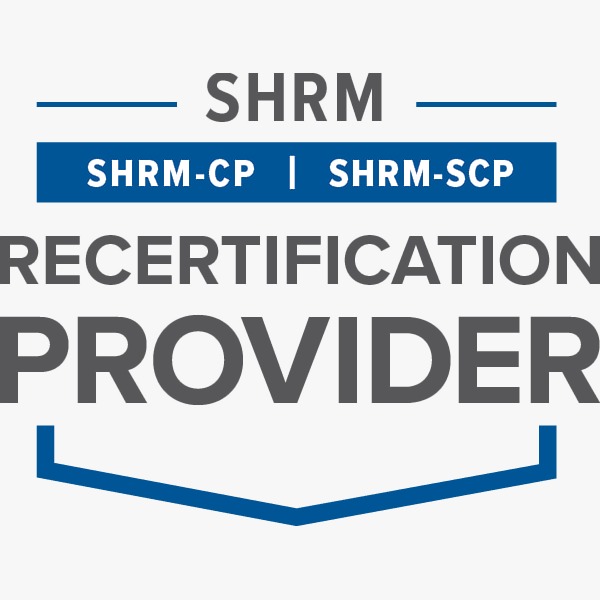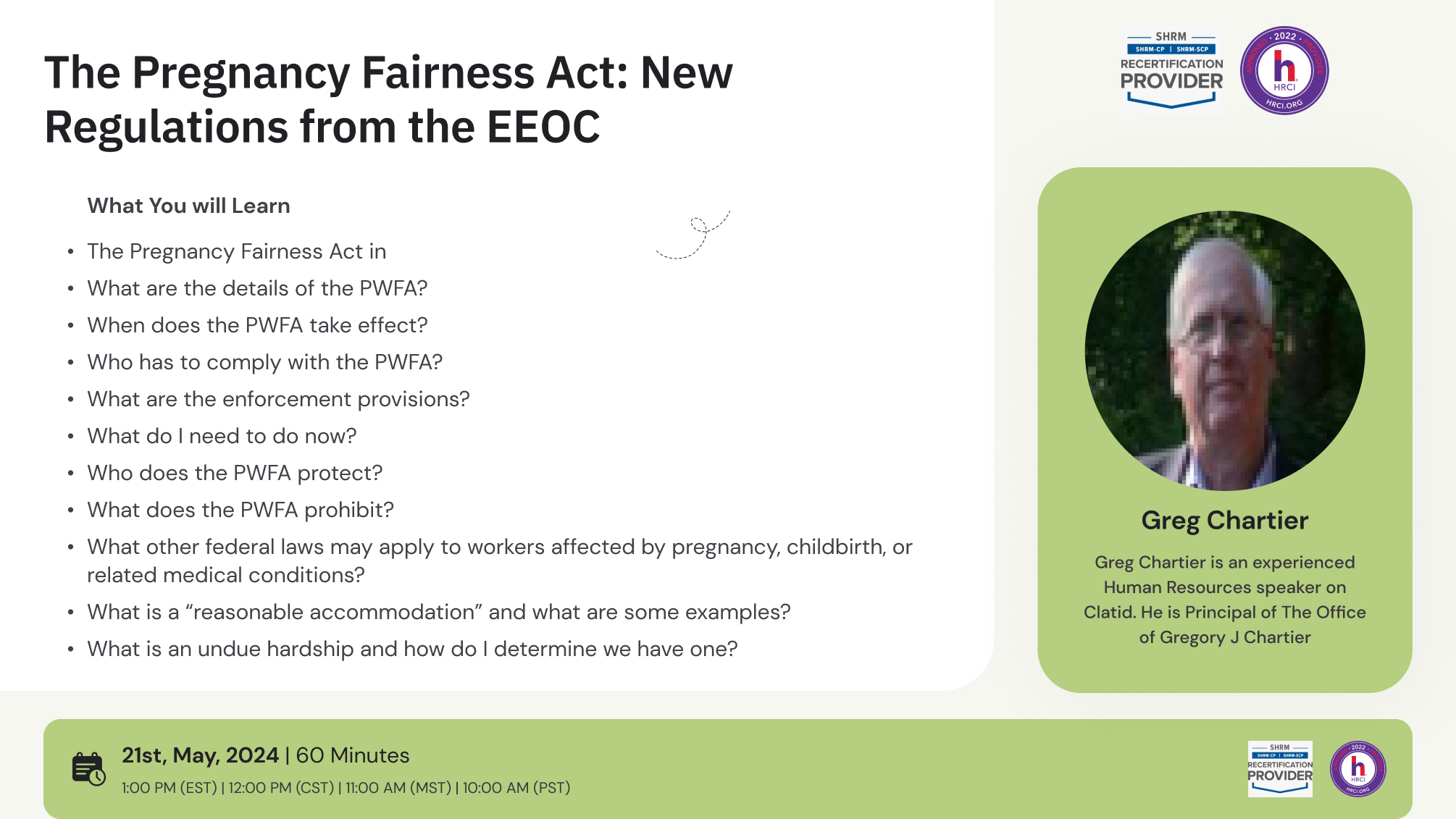The Pregnant Workers Fairness Act in 2024
The Pregnant Workers Fairness Act (PWFA) requires a covered employer to provide a “reasonable accommodation” to a qualified employee’s or applicant’s known limitations related to, affected by, or arising out of pregnancy, childbirth, or related medical conditions, unless the accommodation will cause the employer an “undue hardship.”
The PWFA applies only to accommodations. Other laws that the EEOC enforces make it illegal to fire or otherwise discriminate against employees or applicants on the basis of pregnancy, childbirth, or related medical conditions.
The PWFA does not replace federal, state, or local laws that are more protective of workers (used here to mean job applicants and employees) affected by pregnancy, childbirth, or related medical conditions. More than 30 states and cities have laws that require employers to provide accommodations for pregnant workers.
What You will Learn
- The Pregnancy Fairness Act in 2024
- What are the details of the PWFA?
- When does the PWFA take effect?
- Who has to comply with the PWFA?
- What are the enforcement provisions?
- What do I need to do now?
- Who does the PWFA protect?
- What does the PWFA prohibit?
- What other federal laws may apply to workers affected by pregnancy, childbirth, or related medical conditions?
- What is a “reasonable accommodation” and what are some examples?
- What is an undue hardship and how do I determine we have one?
- How do I handle a reasonable accommodation request?
Why You Should Attend
Nearly 85 percent of women will become mothers during their working lives. And yet discrimination against pregnant workers is incredibly common, showing up in both well-paid law-firm and Wall Street jobs and service-sector work like fast food and retail. Pregnant workers, particularly those in low-wage industries, often need some sort of modification to their jobs so they can keep working while protecting their health and the health of their pregnancies; before the PWFA was passed, such requests were often denied. Many people were simply fired instead of given simple accommodations.
The PWFA ensures that an employer almost always will have to grant some straightforward modifications, such as the ability to sit or stand while at work, carry a water bottle, and take more restroom breaks. Workers can also request things like better-fitting uniforms and light duty assignments. But it also has other requirements that are more far-reaching. In a country in which only 27 percent of Americans get paid family leave, the PWFA opens up a brand-new avenue for workers to secure time off for pregnancy related needs—both before giving birth and afterward—without risking their jobs.
The PWFA also interacts and actually conflicts with other federal civil rights legislation. Join us to learn the details of the PWFA, as employers must determine how to comply with the law and how to connect it to other pieces of legislation that they are obligated to enforce.
Who will Benefit
- All Employers
- Compliance professionals
- Risk management professionals
- HR professionals
- Anyone interested in learning about the PWFA

Greg Chartier
Greg Chartier is an experienced Human Resources speaker on Clatid. He is Principal of The Office of Gregory J Chartier, and is a well-known management consultant, educator and speaker and author of the recently published What Law Did You Break Today? His practice is based on the Business Partner Model of Human Resources, which emphasizes on outsourcing, the use of technology to gain efficiencies and the improvement of managerial skills.
Greg is a thought-provoking professional speaker and his wisdom and insights into management and leadership make him an electrifying speaker and seminar leader. His seminars are customized to reinforce company mission, vision, values and culture and the content is practical for team leaders, managers, supervisors and executives. His philosophy is simple: management is a skill and you can be a better manager by developing your skills.
He has a bachelor's Degree from The Citadel, the Military College of South Carolina, an MBA from Rensselaer Polytechnic Institute and his Ph.D. in Human Resources Management from Madison University. Greg is certified by the Society for Human Resources Management (SHRM) as a Senior Professional in Human Resources (SCP) and as both a Senior Professional and a Global Professional in Human Resources (SPHR and GPHR) by HRCI, the Human Resource Certification Institute.
He is a former Board Member of the Business Council of Westchester, where he was the Chair of the Human Resources Council and a member of the Executive Committee. Greg is a national member of SHRM and a local SHRM chapter, the Westchester Human Resources Management Association. He was also a member of the Board of the Child Care Council of Westchester.
Greg is involved in the Certification Program for Human Resources Management at Pace University, which includes the preparatory program for the Human Resources Professional Examinations and the Essentials in Human Resources Management Program, as well as the Continuing Education Programs including HRCI and SHRM recertification. He is also a member of the faculty of the New York Medical College in Valhalla, NY.

SHRM -
StandEagle is recognized by SHRM to offer Professional Development Credits (PDCs) for the SHRM-CPSM or SHRM-SCPSM. This program is valid for 1.0 PDCs for the SHRM-CPSM or SHRM-SCPSM. For more information about certification or recertification, please visit - portal.shrm.org.

HRCI -
This webinar has been approved for 1.0 HR (General) re-certification credit hours toward California, GPHR, HRBP, HRMP, PHR, and SPHR recertification through the HR Certification Institute.
The use of this seal is not an endorsement by the HR Certification Institute of the quality of the activity. It means that this activity has met the HR Certification Institute’s criteria to be pre-approved for re-certification credit.

ACCREDITATIONS


